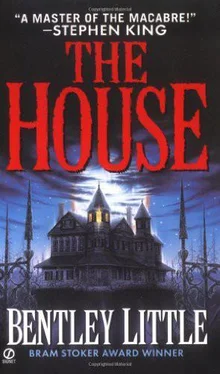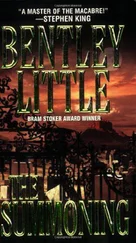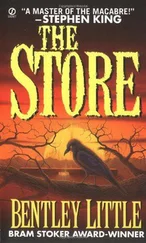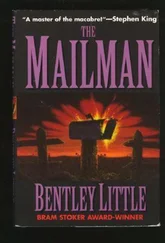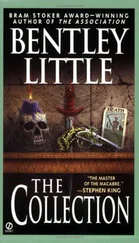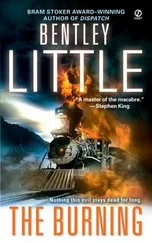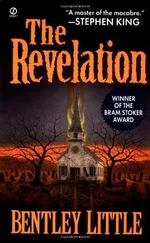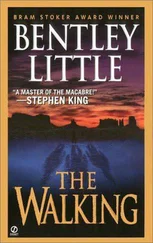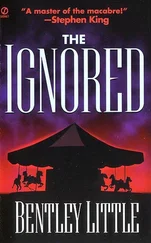He'd grown increasingly tired of this intellectual incestuousness over the years, weary of the monotonic interests and attitudes. It was partly his fault. They were his friends and he had chosen them. He'd made his bed and had to lie in it.
So he'd simply pulled up stakes one day, sold off his Brentwood estate, and relocated to Santa Fe.
Now he conducted his business from here.
Stormy sped through Truchas, the small village where Robert Redford had filmed The Milagro Beanfield War.
He'd first visited New Mexico as a teenager, on a trip with his family, and he had never forgotten the place.
They'd done the tourist loop--White Sands, Carlsbad Caverns, Santa Fe, Taos Pueblo--and it had made a big impression on him. He was a city kid, born and bred in Chicago, and the dry heat, the open space, and the spectacular sky had all spoken to him in a way that nothing else had. He'd realized even then that this was where he wanted to live when he grew up, where he wanted to spend his life.
But the movie and video business was centered in southern California, and by the time he'd made enough money to move here, he'd gotten sucked into that L.A.
lifestyle, and it was not until several years later that he finally made the break.
It was a decision he'd never regretted.
He passed through Chimayo and could not help glancing down the small one-lane road that led to El Santuario .
The small adobe church had always creeped him out. All those crutches and braces hanging in the small dark room with the miracle dirt. Legend had it that the church was built on dirt that had healing powers, and each year, hordes of believers flocked to the spot to have their diseases and deformities cured, the ones who claimed to find relief from infirmity leaving their walking aides behind. He wasn't a religious man himself, he neither believed nor disbelieved, but there seemed something paganistic and primitive, something pre-Christian about this sort of Christianity. Maybe he'd just been watching too many of the movies he distributed, but the whole thing made him uneasy.
Ten minutes later, he hit the highway and was speeding toward downtown Santa Fe.
He arrived back at his office before three.
"How'd it go?" Joan asked as he walked through the door.
"Who knows? That bastard's impossible to read." He sat down in the oversized chair behind his desk, opened the jar of candy next to his computer, and popped a handful of M&Ms into his mouth. He'd been in Taos talking to the organizer of the film festival, trying to get one of his properties shown in competition this year. He had what he thought was a legitimate find, a retelling of Macbeth on an Indian reservation, made by an untrained twenty-five-year-old Hopi kid who'd financed the film by working as a park ranger at Betatakin and saving his money over several summers.
It was one of those success stories that the entertainment media seemed to love so much these days, and he knew he could get a lot of hype out of it. The movie was part of a package deal he'd made with Four Corners, a local distributor that'd gone belly-up, and while most of the titles were routine action flicks, this was an honest to-God film, and for the first time in his life, Stormy saw the opportunity to present to the viewing public a legitimate work by an undiscovered talent.
Maybe he'd try to take it to Sundance.
That would certainly up his cache in the business.
And, besides, the kid deserved it.
He tried to imagine the reaction of his old L.A. friends when they discovered that he was distributing a film that had been shown in competition at Sundance, and the pictures in his mind made him smile.
"You want me to call back tomorrow?" Joan asked.
"Apply a little pressure?"
Stormy nodded. "Tell him to make sure he watches the tape. And tell him he has forty-eight hours. Sun dance is interested."
Her eyes widened. "Really?"
Stormy grinned. "No." He paused dramatically. "At least not yet."
"We have a winner here, don't we?"
"I think we do," he said.
He worked late sorting through contracts. Joan had already left, so Stormy closed up the office and locked up. Roberta would be at her class by the time he got home, so on the way back, he pulled into the drive-thru lane at Burger King and ordered a Whopper, fries, and a chocolate shake. Roberta was constantly harping on him about his dietary habits, claiming that a person who ate the way he did didn't deserve to be wealthy, as though it were his moral obligation to eat gourmet meals all the time, but he failed to see how the fact that his taste in food was different from hers made him a deserving candidate for poverty. Like most overweight people, she put far too much emphasis on food, considered it a much too important part of life. If she considered sex as important as eating and put as much effort into their lovemaking as she did deciding what she ate, they might still have a marriage.
Sex.
It had been what? A month? Two months? He wasn't sure. They hadn't done it in a while, that he knew.
He tried to remember the first girl he'd ever had.
What was her name? Dawn? Donna? Something like that. Strange that he couldn't recall. Weren't you always supposed to remember your first? She'd been poor and dirty. He remembered that much. And that had been part of the allure. She was not like the perfectly scrubbed examples of femininity that were invited over to the house; she was different, wild, and he had liked that. She'd made him do things to her that he hadn't even known about, and in that one summer he had learned everything about sex he had ever needed to know.
It had been all downhill from there.
He hadn't thought of that girl in a long time, and he tried to recall what had happened, why they had broken up. It had probably been after the fire, after they'd moved, but he couldn't remember for sure.
He sighed. It didn't matter. He pulled up in front of the house, parked next to the ocotillo on the edge of the driveway. He sat for a moment in the car, staring through the windshield at the darkened windows of the house, and not for the first time, he wished that he had never gotten married, that he had never met Roberta.
On Friday, as usual, he left the office early and went to The Hogan. It was a regular bar, not an artist's bar, and there were none of the phony Southwest accoutrements that supposedly lent ambience to Santa Fe's nipper hangouts and that he found so annoying and distracting.
Jimbowas working today, and Stormy asked for a Bud Liteand stood at the bar waiting for his order while the bartender moved to fill it. There were two guys halfway down the counter having a loud conversation, and Stormy tuned it in.
"Whatever happened to strongmen?" the guy closest to him was saying. "Remember how we always called leaders of countries we didn't like 'Strongmen'? There was Panamanian Strongman Manuel Noriega, Libyan Strongman Mohammar Khadafi . We never used 'General,','President,' or whatever the hell their official title was. It was always 'Strongman.' Why don't we do that anymore?"
"You're drunk," his companion said.
"Maybe so. But it's a legitimate question."
"We only do that if we want to provoke a confrontation with them," Stormy offered. "We do it to teach our people that these are bad guys. It gets the public ready for war."
The drunk looked up. "Who are you, you anti-American son of a bitch?"
His friend put a restraining hand on his arm.
Stormy smiled apologetically. "Sorry. Didn't mean to butt in."
The drunk pointed. "I know your mama. She was giving pony rides, handing out ass candy."
Jimboarrived with his beer, and Stormy paid. "Thanks."
He headed over to a table next to the jukebox at the far end of the room.
"I'm talking to you!" the drunk yelled.
Читать дальше
